Residents question herbicide use on Wilder trail
| Published: 09-01-2023 5:54 PM |
WILDER — Last week, Brad Goedkoop, a former Hartford tree warden, was walking on the connector trail between North and South Kilowatt Park when he noticed that against the green, late summer vegetation, the staghorn sumacs along the path were withered and brown.
Staghorn sumac trees, which are native to the area, make up the majority of the plant life on the trail. They flower in the summer, drawing bees and other pollinators to their red, conical bloom.
Goedkoop raised concerns about the trees’ unseasonal demise and found out that the multinational electric company, National Grid, owns one of two telephone lines that run the length of the trail and had received a right-of-way permit from the Vermont Agency of Agriculture in early August to apply herbicides.
The Rutland-based Vermont Electric Power Company, or VELCO, owns the other set of telephone lines that run along the trail. The companies have separate rights of way on the land below the lines they own in the area, giving them control over what happens on the ground.
The land on which the utilities have rights-of-ways is owned by Great River Hydro, a Massachusetts-based company that owns and operates the Wilder Dam. The Town of Hartford leases the land from Great River Hydro for the north and south sections of Kilowatt Park, as well as the connector trail.
Goedkoop retired from his position as tree warden in 2020. As he remembers it, the land along the trail had previously only been managed mechanically by the utilities who have the telephone line rights-of-ways.
“They’d go down with brush cutters and cut down all that stuff under the lines every few years,” Goedkoop said. He’s all for that kind of trimming back. Staghorn sumac grows quickly and requires supervision.
But the chemical defoliant is an overstep, he said. National Grid is within their permitted rights, but Goedkoop questions the permit.
Article continues after...
Yesterday's Most Read Articles
“National Grid did it and got the OK from the state,” he said. “But why did the state allow it to happen in a public park? That’s a public use trail, and public dollars went into creating it.”
The health of the plants aside, which concerns Goedkoop, the visual effect of the dead sumacs is striking, he said.
The agency conducts permit inspections periodically, but following Goedkoop’s complaint, the agency sent a specialist to examine permit compliance in the area “immediately” and opened an investigation, said Dave Huber, the agency’s deputy director of its Public Health & Agricultural Resource Management Division.
If there are violations, enforcement from the agency could range from a warning to legal action, Huber said.
National Grid demonstrated in a spreadsheet that it did its due diligence in door-knocking, letting abutters know that they would be chemically treating the area, according to records provided by the company to the state. National Grid also ran a notification about the treatment in the Valley News.
“That’s kind of where it lands,” said Scott Hausler, director for the Hartford Parks and Recreation Department. “It’s their property, it’s their right to do the treatments that they did, and they did the proper notification to the public.”
But Hausler said he was not aware of receiving notification himself from National Grid.
“We feel that although National Grid may have done what they’re required to by law, there’s probably a misstep somewhere in their notification process,” he said. “(The town) didn’t get direct notification. If we did, it didn’t cross my desk, and I manage the property.”
The three chemical herbicides used by the National Grid along its right of way are approved as safe for use by the federal Environmental Protection Agency, said Mariclaire Rigby, the company’s vegetation manager, in an e-mail. In the future, “National Grid forestry staff will field inventory the (right of way) and determine which maintenance treatment works best at that time,” Rigby said.
“When crews are working on the ROW, they put up signs to indicate they are working there. The product dries on the leaves within 5-10 minutes,” after which the area is safe for entry, she said.
The sumacs, however, couldn’t withstand the chemicals.
Jeff Disorda conducts right of way vegetation management under the lines on the trail owned by VELCO. Disorda said he and his team have routinely fought against the sumac there, which he said makes up the majority of the plant life surrounding the trail.
“It just resprouts,” he said. “The mowing machine causes it to grow back thicker, with more stem density. So it increases our workload every time we use a mowing machine.”
But despite the extra effort, out of concern for the health of vegetation around areas of public use, VELCO’s management preference for its own right of way in the area remains mowing.
“We just wouldn’t want to use herbicides near trails,” Disorda said.
Frances Mize is a Report for America corps member. She can be reached at fmize@vnews.com or 603-727-3242.

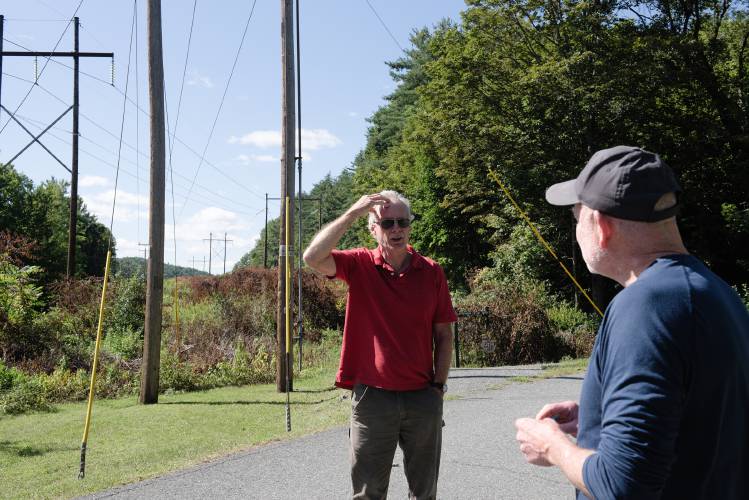
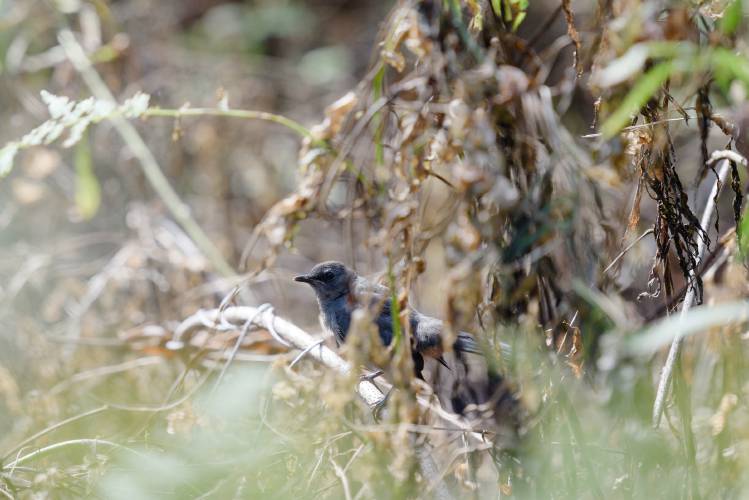
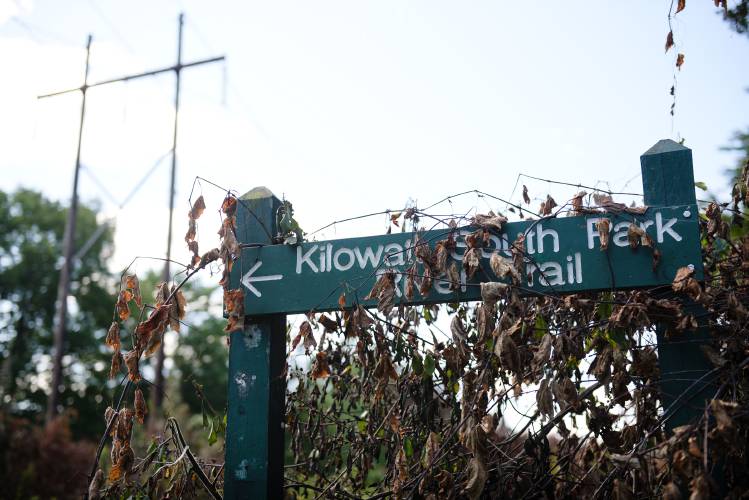
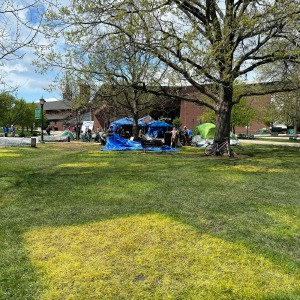 Students take down pro-Palestinian encampment at UVM
Students take down pro-Palestinian encampment at UVM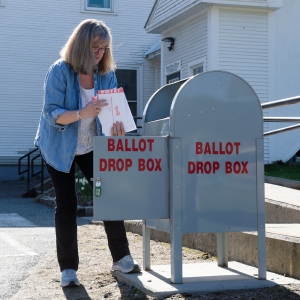 Sharon voters turn back proposal to renovate school
Sharon voters turn back proposal to renovate school Dartmouth administration faces fierce criticism over protest arrests
Dartmouth administration faces fierce criticism over protest arrests
